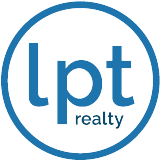

Your Savings and Down Payment
Your First Step Toward Buying a Home When preparing to buy a home, the first thing many homebuyers do is look at the real estate ads in newspapers, magazines and listings on the Internet. Some potential buyers read how-to articles like this one. The next thing you should do - before you call on an
Read More

Where Does the Money Come From for Mortgage Loans?
In the olden days, when someone wanted a home loan they walked downtown to the neighborhood bank or savings & loan. If the bank had extra funds lying around and considered you a good credit risk, they would lend you the money from their own funds. It doesn’t generally work like that anymore. Most o
Read More

The Biweekly Mortgage - Who Needs It?
Have you received an advertisement offering to save you thousands of dollars on your thirty-year mortgage and cut years off your payments? With email spam becoming more pervasive as everyone tries to get rich quick on the Internet, these ads are popping up with troublesome regularity. The ads promo
Read More

Land Contract
An alternative to a non-conforming loan is the use of a land contract, which is allowed in some states. A land contract is an agreement between a buyer and a seller, where the buyer agrees to make periodic payments to the seller. The title to the property only transfers to the land contract buyer o
Read More
Categories
Recent Posts









